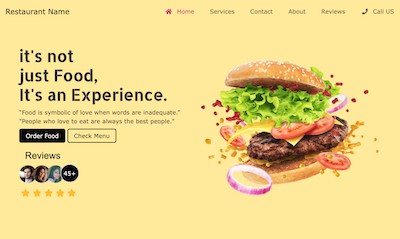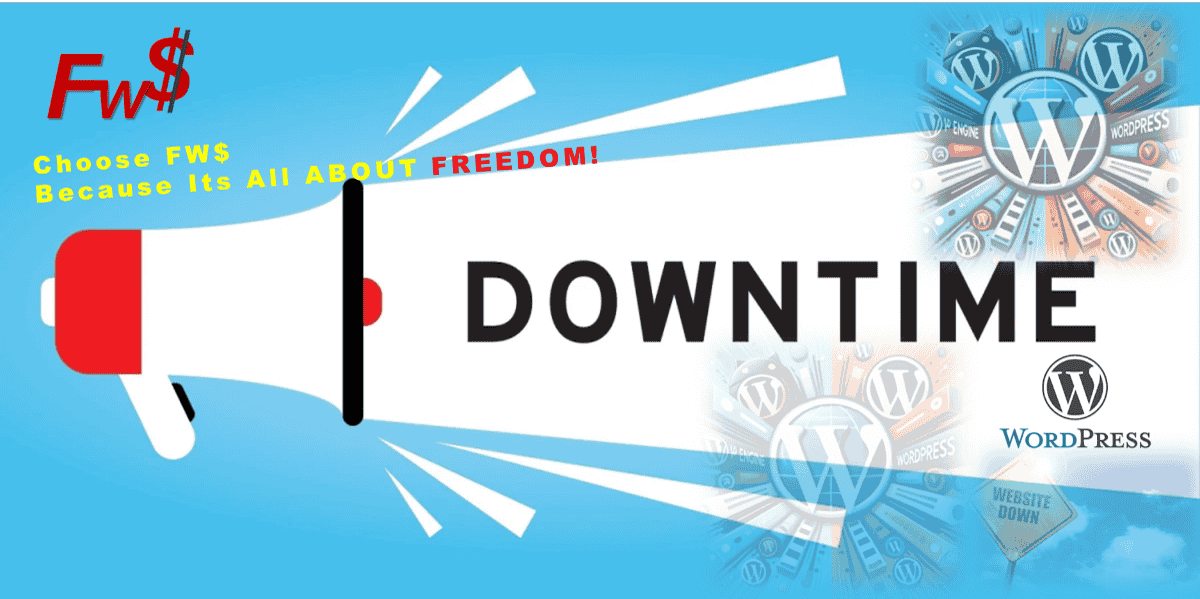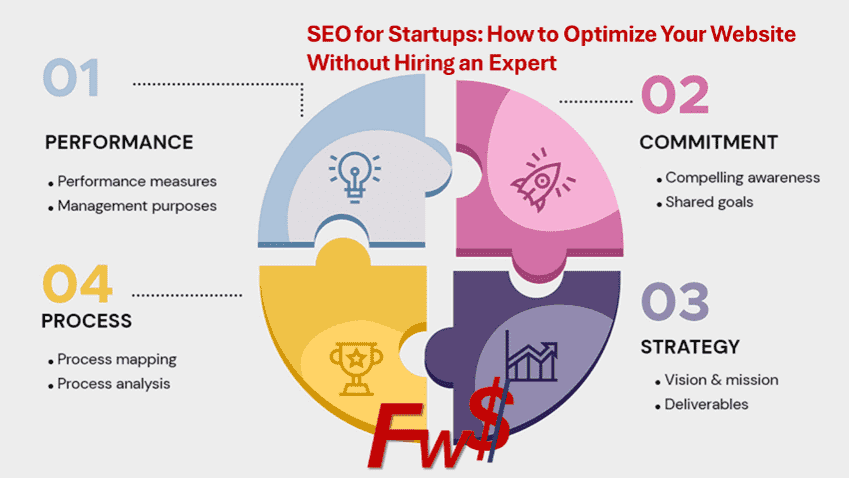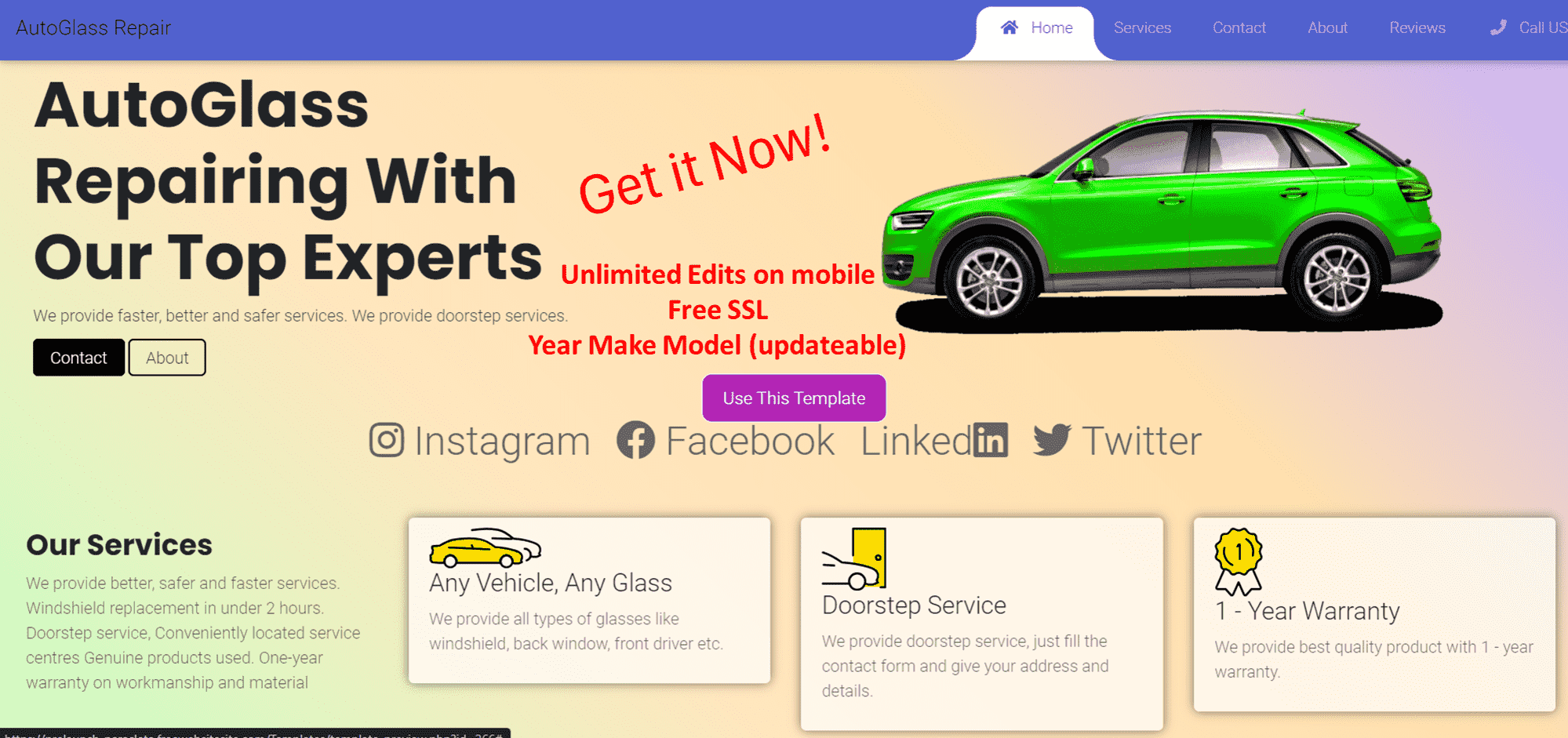Customer Service Strategies for Small Teams
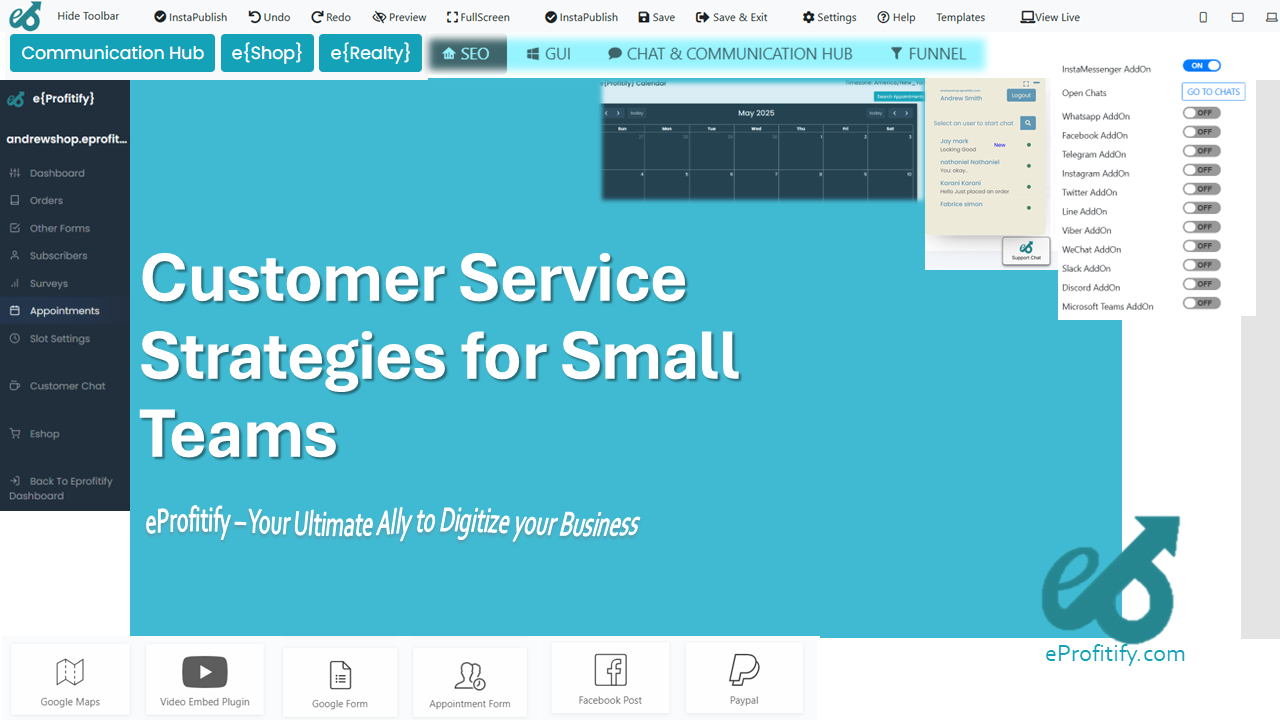
Customer Service Strategies for Small Teams: Enhancing Efficiency with Smart Tools
In an era where customer expectations are higher than ever, small teams face the challenge of delivering exceptional service with limited resources. According to a PwC report, 86% of buyers are willing to pay more for a superior customer experience, underscoring the direct link between service quality and revenue. However, small businesses often struggle with scalability and efficiency. This article explores actionable customer service strategies tailored for small teams, supported by statistics, and highlights how platforms like eProfitify—a comprehensive website publishing and management tool—empower businesses to compete effectively.
1. Personalization: Build Stronger Customer Relationships
Personalized interactions are no longer optional; they’re a necessity. A study by Accenture revealed that 80% of customers are more likely to purchase from brands that offer tailored experiences. For small teams, leveraging Customer Relationship Management (CRM) tools is key.
How eProfitify Helps: eProfitify’s integrated CRM allows teams to track purchase histories, preferences, and communication logs. This centralized data enables personalized follow-ups, targeted recommendations, and a cohesive customer journey. For instance, a boutique store using eProfitify can send birthday discounts based on customer profiles, fostering loyalty without manual effort.
2. Omnichannel Support: Meet Customers Where They Are
Customers expect seamless interactions across email, social media, live chat, and phone. Aberdeen Group found that companies with omnichannel strategies retain 89% of their customers, compared to 33% for those without. Small teams must integrate channels to avoid fragmented communication.
How eProfitify Helps: eProfitify’s platform includes instant messaging, social media integrations, and email management, consolidating inquiries into one dashboard. A café owner, for example, can respond to Instagram DMs while managing online orders via eProfitify’s eCommerce features, ensuring no customer query falls through the cracks.
3. Self-Service Options: Reduce Workload, Empower Customers
Proactive customers prefer solving issues independently. Microsoft reports that 67% choose self-service over contacting support.
How eProfitify Helps: The platform offers customizable FAQs, chatbots, and knowledge base widgets. An IT startup could deploy eProfitify’s AI chatbot to handle routine troubleshooting, freeing the team to focus on complex issues while maintaining 24/7 support accessibility.
4. Proactive Support: Anticipate Needs Before They Arise
Proactivity transforms customer satisfaction. Forrester notes that proactive service can reduce inbound queries by 30%. Tools like appointment reminders or feedback requests preempt concerns.
How eProfitify Helps: With its appointment management system, service-based businesses (e.g., salons or clinics) automate reminders via SMS or email, minimizing no-shows. A fitness coach using eProfitify might send personalized workout tips post-session, enhancing engagement.
5. Team Training and Accountability: Equip Your Workforce
Empowered teams resolve issues faster. Training aligned with tools ensures consistency. According to Salesforce, 84% of employees claim poorly integrated tools hinder productivity.
How eProfitify Helps: The platform’s unified interface reduces tool fragmentation. Role-based access ensures team members view relevant CRM data or sales pipelines. A small retail team can collaborate on resolving a shipping delay by accessing order history and customer notes in real-time.
6. Leverage Technology: Automate for Efficiency
Automation is a game-changer for small teams. Nucleus Research found CRM adoption increases productivity by 58%. However, juggling multiple tools is counterproductive.
How eProfitify Shines: Beyond CRM, eProfitify combines eCommerce, invoicing, analytics, and multi-channel support. A handmade jewelry store can manage listings, process payments, and track deliverables in one place, slashing administrative overhead. Its analytics dashboard identifies trends, like peak support times, optimizing staff scheduling.
7. Feedback Loops: Continuously Improve
Listening to customers drives growth. A Groove HQ study showed companies acting on feedback achieve 55% higher retention.
How eProfitify Facilitates This: Post-interaction surveys and sentiment analysis tools within eProfitify’s CRM capture insights. A bakery could adjust its delivery policies based on recurring feedback about packaging, demonstrating responsiveness.
eProfitify: The All-in-One Solution for Small Teams
While each strategy is powerful individually, combining them amplifies impact. eProfitify emerges as a leader here, offering tools that unify customer service, sales, and operations:
- Instant Messaging: Engage customers in real-time across websites and social platforms.
- Appointment Management: Automate bookings and reminders for service industries.
- Integrated eCommerce: Sync inventory, payments, and order tracking.
- CRM: Centralize customer data for hyper-personalization.
- Analytics: Track KPIs like response times and conversion rates.
For example, a consultancy firm using eProfitify can schedule client meetings via the calendar tool, invoice through the platform, and analyze client engagement trends—all while maintaining seamless communication.
Conclusion
Small teams don’t need vast resources to excel in customer service—they need smart strategies and the right tools. By prioritizing personalization, omnichannel support, self-service, and proactive engagement, businesses can build lasting loyalty. Platforms like eProfitify act as force multipliers, integrating essential features into one ecosystem. In a landscape where 90% of customers expect “immediate” responses (HubSpot), adopting such tools isn’t just beneficial—it’s imperative for growth. Embrace these strategies, harness technology, and watch your small team deliver outsized results.
